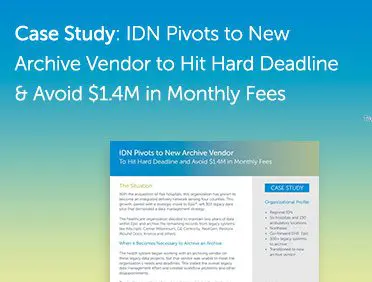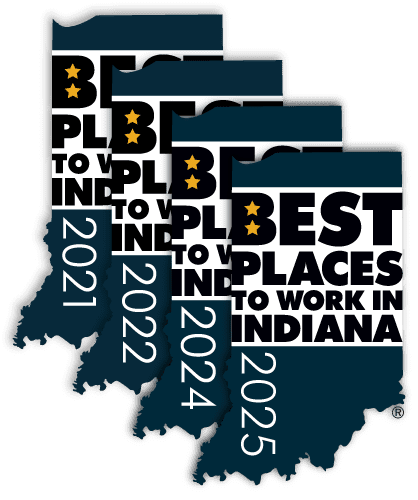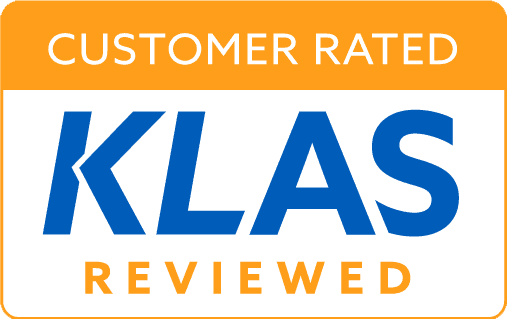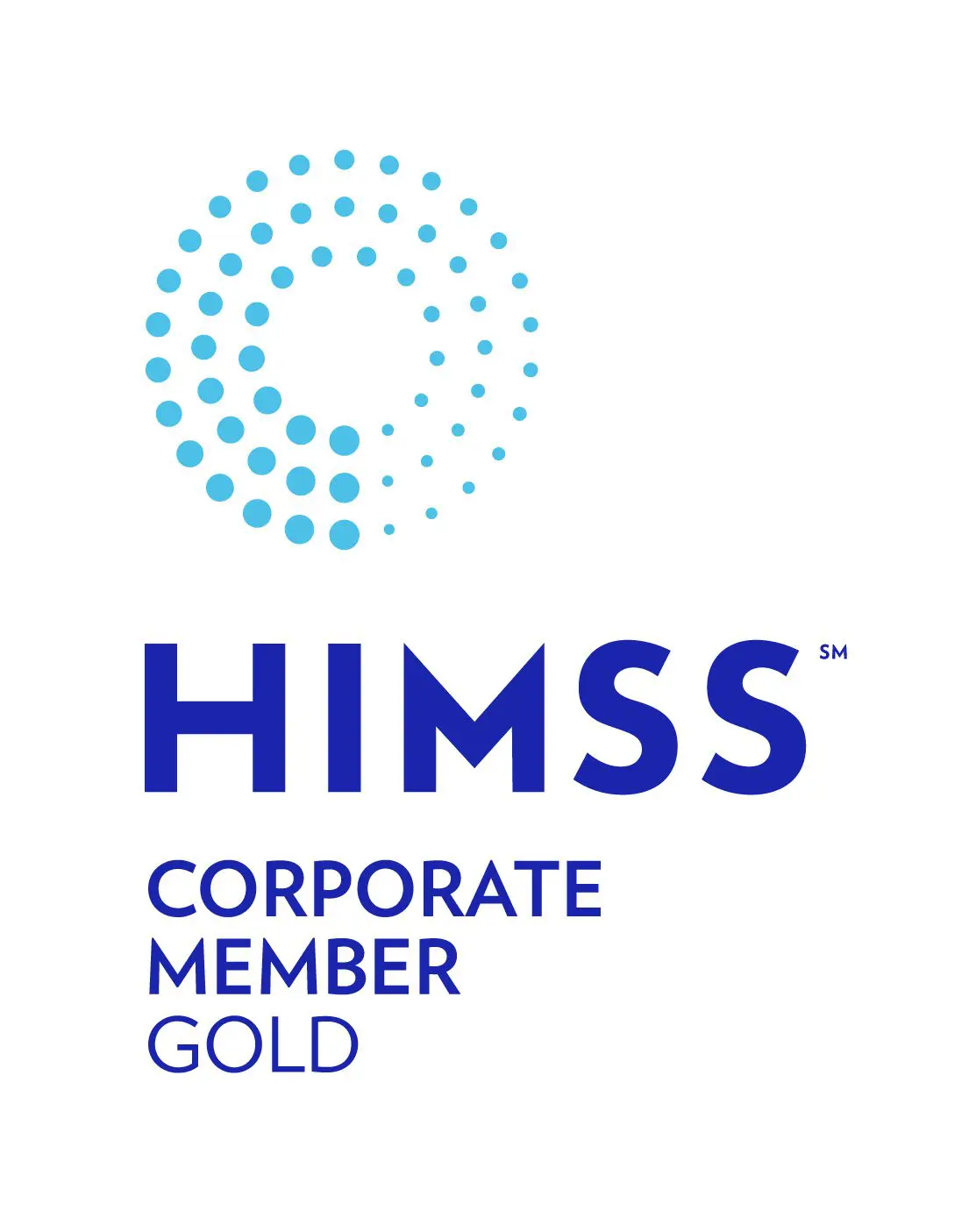
The Situation
With the acquisition of five hospitals, this organization has grown to become an integrated delivery network serving four counties. This growth, paired with a strategic move to Epic®, left 303 legacy data silos that demanded a data management strategy.
The healthcare organization decided to maintain two years of data within Epic and archive the remaining records from legacy systems like Allscripts, Cerner Millennium, GE Centricity, NextGen, Restorix Wound Docs, Kronos and others.
When it Becomes Necessary to Archive an Archive
The health system began working with an archiving vendor on these legacy data projects, but that vendor was unable to meet the organization’s needs and deadlines. This stalled the overall legacy data management effort and created workflow problems and other disappointments.
Due to the acquisition of one hospital in particular, the clock was ticking against a hard date to migrate data from a large Cerner Millennium EHR instance to the archive. The health system faced $1.4 million in monthly charges if the data was not moved on time. Lacking confidence in their vendor’s ability to handle the project, they began to search for an alternative archiving partner.
To accomplish their goals, the healthcare organization needed to pivot and choose a new vendor partner not only with Cerner experience but the discipline to deliver on time as well, ensuring the legacy health data in our care would be viable, accessible and secure.
The healthcare organization reached out to Harmony Healthcare IT because of its strong reputation and broad experience with more than 550 unique clinical, financial, and administrative software brands – including Cerner Millennium. The health system soon learned, in addition to being a well-equipped team to get the job done on time and correctly, Harmony also had experience archiving the soon-to-be replaced archiving vendor’s product. That was a plus.
The Solution
Harmony Healthcare IT tackled the large Cerner Millennium archive and met the deadline. Harmony also completed several other high-priority projects. Two active archive products were utilized: HealthData Archiver® to store clinical and business records and HealthData AR Manager® to allow for accounts receivable wind down.
Key results from the Cerner Millennium archive project include:
- An on-schedule deployment of HealthData Archiver® to meet the short, hard deadline
- A significant return on investment in the mid six figures over five years – which does not calculate additional savings on equipment, staffing and other expenses
The health system is now working with Harmony Healthcare IT to archive its previous vendor’s archive into HealthData Archiver® so there is a single central repository for all legacy data that meets the needs of the organization.
Key Active Archive Benefits
Easy record access – Through Single Sign-On, clinicians report a seamless, in-context connection to a patient’s historical medical record in HealthData Archiver® from within the same patient’s current medical record in Epic. The health information management (HIM) department also cites favorable experiences in the ease of use of locating legacy records and releasing information.
A/R wind down – Provides comprehensive re-billing and collections for account receivables wind down and, ultimately, record storage. By keeping necessary billing interfaces intact, HealthData AR Manager® equips the collector to refile 837 claims, view the full transaction history, produce statements/on-demand letters, post payments, adjustments, memos and refund requests; produce standard reports, comply with government agency requirements, and more.
FairWarning® integration – Monitors potential threats to the long-term security of historical patient and employee
record storage by extending the audit capabilities of FairWarning into HealthData Archiver®.
Five Tips for Legacy Data Management Projects
- Prioritize the project – Treat your archive like any other application implementation. Legacy data is a critical piece of the overall data landscape within the healthcare system.
- Do your homework – Take the time to document a complete inventory of legacy systems. This includes details about the system such as costs, risks, contract terms, etc.
- Establish governance – Involve a Data Governance team at every step along the way. Meet routinely and involve this team in securing the budget needed to archive securely and on-time.
- Pick the right vendor – Evaluate the archiving vendor on all criteria that will make the project and relationship run smoothly. If, at any point, a vendor does not meet your expectations, pivot and choose a new vendor.
- Dedicate a resource – Appoint a project manager to serve as the main contact for all archiving projects. Ideally this person has a strong combination of analytical and project management skills.






